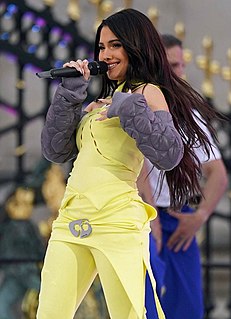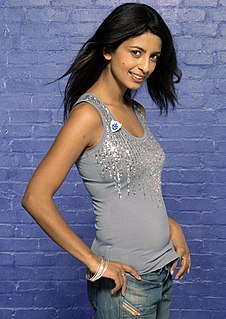A Quote by Halle Berry
I was black growing up in an all-white neighborhood, so I felt like I just didn't fit in. Like I wasn't as good as everybody else, or as smart, or whatever.
Related Quotes
It was common practice for me to take my children with me whenever I went shopping, out for a walk in a white neighborhood, or just felt like going about in a white world. The reason was simple enough: if a black man is alone or with other black men, he is a threat to whites. But if he is with children, then he is harmless, adorable.
I remember crying all the time. My major thing growing up was I couldn't fit in. Because I was from everywhere, I didn't have no buddies that I grew up with...Every time I had to go to a new apartment, I had to reinvent myself, myself. People think just because you born in the ghetto you gonna fit in. A little twist in your life and you don't fit in no matter what. If they push you out of the hood and the White people's world, that's criminal...Hell, I felt like my could be destroyed at any moment.
Back when we was in school in Mississippi, we had Little Black Sambo. That's what you learned: Anytime something was not good, or anytime something was bad in some kinda way, it had to be called black. Like, you had Black Monday, Black Friday, black sheep... Of course, everything else, all the good stuff, is white. White Christmas and such.
When my family first moved to Hempstead in the 1960s, they were one of the first black families. It used to be an all-white neighborhood, but there was white flight when the black people with money started moving in. When I was, like, 13 or 14, Hempstead had just become all black, and the poverty became worse and worse.
If you have an all-white neighborhood you don't call it a segregated neighborhood. But you call an all-black neighborhood a segregated neighborhood. And why? Because the segregated neighborhood is the one that's controlled by the ou - from the outside by others, but a separate neighborhood is a neighborhood that is independent, it's equal, it can do - it can stand on its own two feet, such as the neighborhood. It's an independent, free neighborhood, free community.




































